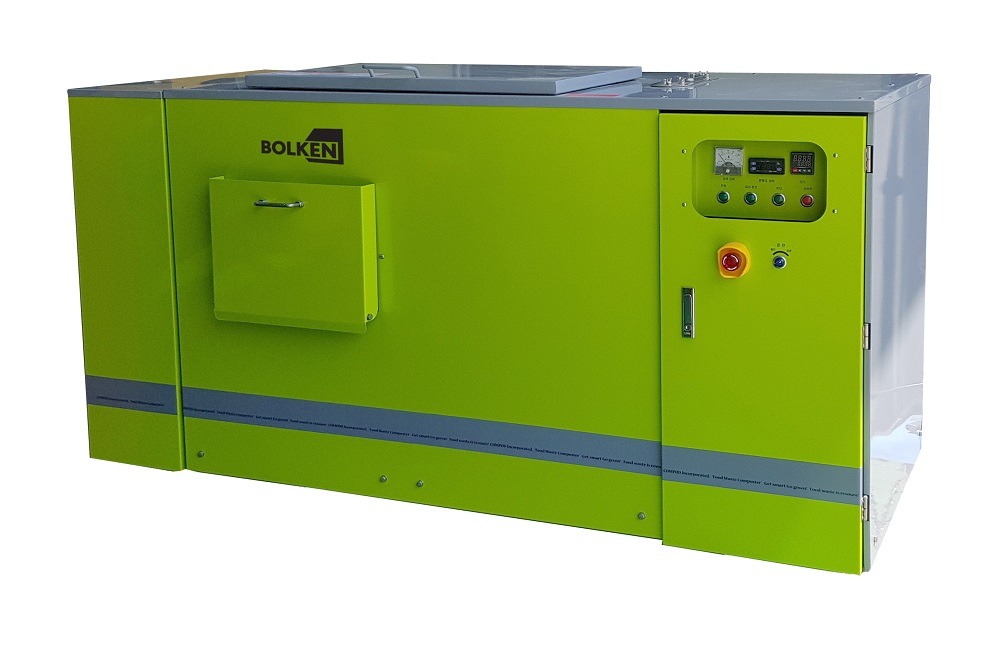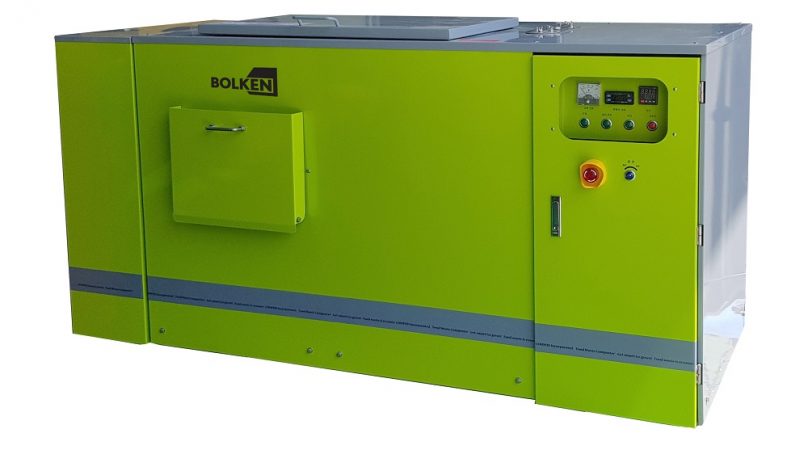 Meker Environment was created in early 2018, as a response to the garbage crisis that Lebanon has been facing since 2015. It is a subsidiary of Société Meker pour l’Industrie, one of oldest (50 years) kitchen manufacturers in Lebanon. The company was created with one goal in mind: The full decentralization of the food waste treatment – as far as the single dwelling! HN spoke to Ramy Mehanna, sales director, to know more about their offerings and services.
Meker Environment was created in early 2018, as a response to the garbage crisis that Lebanon has been facing since 2015. It is a subsidiary of Société Meker pour l’Industrie, one of oldest (50 years) kitchen manufacturers in Lebanon. The company was created with one goal in mind: The full decentralization of the food waste treatment – as far as the single dwelling! HN spoke to Ramy Mehanna, sales director, to know more about their offerings and services.
Tell us more about Meker’s organic waste bio-disposers
These are small machines that can transform any organic waste into a fertilizer within 24 hours. Their use is very straight forward: You open the lid of the machine, you throw in the daily capacity of food waste, and get fertilizer after 24 hours. The entire process involves no smell, no leachate, and a very small footprint (our two tons per day unit occupies 5m x 2m floor plan). The end product is either used directly in the soil (in a low percentage) or undergoes a secondary composting process to reach maturation. The idea behind this concept is to treat the waste at source thus reducing the disposal volume (by up to 10 times) and its associated costs, as well as reducing the smell and leachate. The UAE issued a law a couple of years ago forcing any company generating more than a certain weight of waste per year to treat it on site. A lot of towns in the US, Canada, and Europe are starting to do the same. We have another machine that can transform the chicken/cow/horse… waste, sludge, fruits and vegetables into mature compost in 24 hours! This is more geared towards the production of compost.
How did you decide to develop your product offering to include eco-friendly solutions?
I am an environmental engineer and worked in that field for 10 years (from 2000 to 2010) during which we equipped a 150 tons per day composting plant. I then joined the family business (Meker – kitchen manufacturers) and was looking since then for a smart/ small unit to be integrated in our kitchen to reduce the waste generation. I found the household unit – bought three units and tested them for a couple of years and then decided to propose it with our kitchens. We then increased the capacities and widened our target audience.
To which sectors do you cater? and how can hotels and restaurants benefit from this line?
We have machines that cater for a wide range of sectors. Some machines are specifically developed for food waste that can be used in houses, buildings, cafeterias (hospital, banks, schools…), restaurants, hospitals, malls, resorts, cruise ships, hotels, military camps…
By using our machines:
- They will reduce the disposal costs: We implemented this exercise with a hotel that it is our client. By installing our machine, the client would have reduced the disposal cost.
- They will remove the smell and leachate from their garbage bins: We installed a machine a couple of years ago in the restaurant of the ATCL, to allow them to reach zero smell and zero leachate. That alone justified the investment (as per the client).
- They will reduce the usage of garbage bags.
- They will reduce rodents and insects – virtually remove them.
We have another machine that is geared more towards the compost production using any type of organic input (manure, sludge, vegetables and fruits) and that can be done in 24 hours to get mature compost.
Do you believe the hospitality and F&B industry are more into greener solutions?
We have approached these clients and whiet they show some interest and the machine can really solve issues (reduce the smell, reduce the leachate, take care of wastage that would otherwise end up in landfill), none is willing to do the investment. They prefer to settle for low cost solutions (like putting segregation bins, or printing out fliers in which they explain that they are environmentally friendly because they remove the glass and cardboard from their garbage _ usual marketing stuff). They will go for LED bulbs because there is a direct impact on their pocket (and they will promote that they are doing it for the good of the environment). We contacted banks (their cafeteria), supermarkets, malls… and while we reached the step of picking a location for the machine, it never concretized. We even qualified our machine for a grant from the EU (0 percent over five years).
Do you already have any local clients? (can you please give a few examples?) and what was their main motive to purchase such a product?
On the bigger size machine, we sold one (50 kg per day) to ATCL. We also sold like 20-25 small machines to use for households. Their motive is essentially the preservation of the environment.
By how much can this product decrease the daily waste in a property since decomposition can be done with a 24-hour cycle?
The machines reduce by up to 90 percent the weight of the input. You need a 24 hours cycle. After that, and depending on the input type, you can reuse it as a fertilizer (in small percentage). You can also mix it with green waste and water, and do a secondary composting for a wider use.
What is the investment needed for such a product?
It starts at USD800 for the 1.5 kg inside the kitchen and goes up to USD150,000 for the five tons a day (enough for a small village). The main advantage is that it needs a small footprint.
Do you export this product? (which markets interest you?)
Until today no, but we would be interested to do so! It can be very interesting for countries like Germany, Austria or Switzerland that are very keen on their environment.















